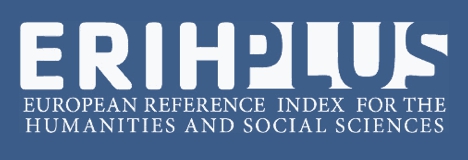Geographical perspectives in the language of the cinema: the city of london in 007 Skyfall
Abstract
Starting from an analysis of the film 007 - Operation Skyfall under the geographical direction, it is the objective of this study to explore the relations between geography and images from the representation of the urban space of the city of London in the cinema, through cuts of scenes. Seeking to go beyond the studies already produced, the article seeks to understand the cinematographic landscapes, interpreting them in a geographic view the elements that compose it, relate them to reality and seek to understand the factors that can enable the change in their meaning with the manipulation of the real landscapes. It is considered that the approximations between geography and cinematographic art are possible, leading the new researchers to an interdisciplinary reflection of the knowledge about the urban space of London.
References
AMANCIO, T. O Brasil dos gringos: imagens do cinema. Niterói: Intertexto, 2000.
ARMES, Roy. On Vídeo: o significado dos vídeos no meio de comunicação; (tradução de George Schlesinger). São Paulo: Summus. 1999.
BARBOSA, Jorge Luiz. Geografia e cinema: em busca de aproximações e do inesperado. In: CARLOS, Ana Fani A. (org.) A geografia em sala de aula. São Paulo: Contexto, 1999.
CALLAI, H. Estudar o lugar para compreender o mundo. In: CASTROGIOVANNI, A. C. (Org.). Ensino de geografia: práticas e textualizações no cotidiano. Porto Alegre: Mediação, 2000.
DEBRAY, Régis. Vida e Morte da Imagem: uma história do olhar no ocidente. Rio de Janeiro: Vozes, 1994.
FERREIRA, Glauco. “QWOCMAP: (auto)representações de mulheres queer e de cor e sua produção audiovisual nos EUA”. Revista Ártemis, 2012.
GUÉRON, Rodrigo. Da imagem ao clichê, do clichê à imagem: Deleuze, cinema e pensamento. Rio de Janeiro: NAU Editora, 2011.
HOLLYWOOD.COM. ‘Skyfall’: Hollywood.com Visits the Set of Bond’s the Latest Mission. Disponível em:
JAMES BOND BRASIL. Daniel Craig. Diponível em:
LEVY, Evelyn. Democracia nas cidades globais: um estudo sobre Londres e São Paulo. São Paulo: Studio Nobel, 1997.
LOPES, Rodrigo. A cidade internacional: o planejamento estratégico de cidades. Rio de Janeiro: Mauas, 1998.
MARX, Karl. Crítica da Economia Política. Rio de Janeiro: Nova Fronteira, 1968.
METZ, Christian. A Significação no Cinema. São Paulo: Perspectiva, 2013.
NEVES, Alexandre Aldo. Geografias de cinema: do espaço geográfico ao espaço fílmico. Dourados - MS: Revista Entre-Lugar, 2010.
NOVAES, Sylvia Caiuby [et al.]. (orgs.). Escrituras da Imagem. São Paulo: Edusp, 2004.
PEIRCE, Charles S. Semiótica. São Paulo: Perspectiva, 2010.
RIMBERT, Sylvie. Approches des Paysages, L’Espace Géographique. Paris: Doin, 1973.
SALGUEIRO, Tim. Lisboa, Periferia e Centralidades. Oeiras: Celta Editora, 2001.
SANTOS, Milton. Metamorfose do Espaço Habitado: Fundamentos Teóricos e Metodológicos. 6ª ed. São Paulo: Edusp, 2012.
SANTOS, Milton. A Natureza do Espaço: Técnica e Tempo, Razão e Emoção. São Paulo: EDUSP, 2002.
SANTOS, Milton. O Brasil: território e sociedade no início do século XXI – 10ª ed. – Rio de Janeiro: Record, 2006.
SASSEN, Saskia. The Global City: New York, London, Tokyo. Princeton, Princeton University Press, 1991.
TELES, Reinaldo. Fundamentos geográficos do turismo. Rio de Janeiro: Elsevier, 2009.

This work is licensed under a Creative Commons Attribution-NonCommercial 4.0 International License.
Policy Proposal for Free Access Journals
Authors who publish in this journal agree to the following terms:
a. Authors retain the copyright and grant the journal the right of first publication, with the work simultaneously licensed under the Creative Commons Attribution License which allows the sharing of the work with acknowledgment of the authorship of the work and initial publication in this journal.
b. Authors are authorized to take additional contracts separately, for non-exclusive distribution of the version of the work published in this journal (eg publish in institutional repository or as a book chapter), with acknowledgment of authorship and initial publication in this journal.
c. Authors are allowed and encouraged to publish and distribute their work online (eg in institutional repositories or on their personal page) at any point before or during the editorial process, as this can generate productive changes, as well as increase the impact and The citation of published work (See The Effect of Free Access).





















